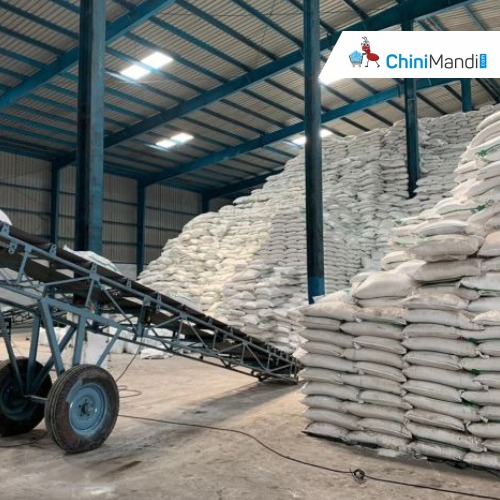Islamabad: The Sugar Advisory Board (SAB) made a key decision on Wednesday to prioritize ensuring stable sugar prices for the country by linking surplus sugar with exports.
This decision came during a meeting led by Rana Tanveer Hussain, the Federal Minister for Industries and Production. The minister emphasized the importance of meeting domestic sugar demand before exploring export options, acknowledging the significant impact sugar price increases have on citizens.
The meeting aimed to assess the overall sugar stock situation for the 2023-24 crushing season and evaluate a proposal from the Pakistan Sugar Manufacturing Association (PSMA) to export surplus sugar.
The SAB opted to postpone a final decision on sugar exports. Instead, they will gather verified data on current sugar stock levels, including anticipated beet sugar production, and recommendations from provinces. This information will be reviewed at the next meeting to determine the impact of potential exports on domestic sugar prices and inflation, particularly for low-income households.
Representatives from the PSMA argued for government approval to export excess sugar stock after fulfilling domestic needs. The PSMA proposed exporting one million tons of refined sugar in an initial phase, generating an estimated $650-700 million in foreign exchange. They envisioned exporting the remaining 0.6 million tons in two phases by May and June 2024.
The PSMA highlighted the rising cost of sugarcane production, with prices increasing from Rs350 to Rs450 per 40kg in the past year. This has pushed the current production cost of sugar to Rs170 per kg, while retail prices remain significantly lower at Rs145-150 per kg, making Pakistan’s sugar the cheapest globally.
The PSMA expressed concerns that a ban on exports could lead to sugar smuggling to neighbouring countries like Iran and Afghanistan. This would not only deprive Pakistan of valuable foreign exchange but also benefit smugglers.
The association argued that the international sugar market price sits at $650 per ton, compared to the local production cost of $503 per ton. They believe export permission would be advantageous for both the sugar industry and the nation’s economy.
The meeting also acknowledged that sugar consumption in Pakistan is primarily industrial (85%), with only 15% dedicated to household use. Additionally, an 18% general sales tax (GST) is applied to sugar.
By prioritizing domestic supply and price stability, the SAB aims to ensure affordability for Pakistani citizens while considering the economic benefits of potential sugar exports in the future.












